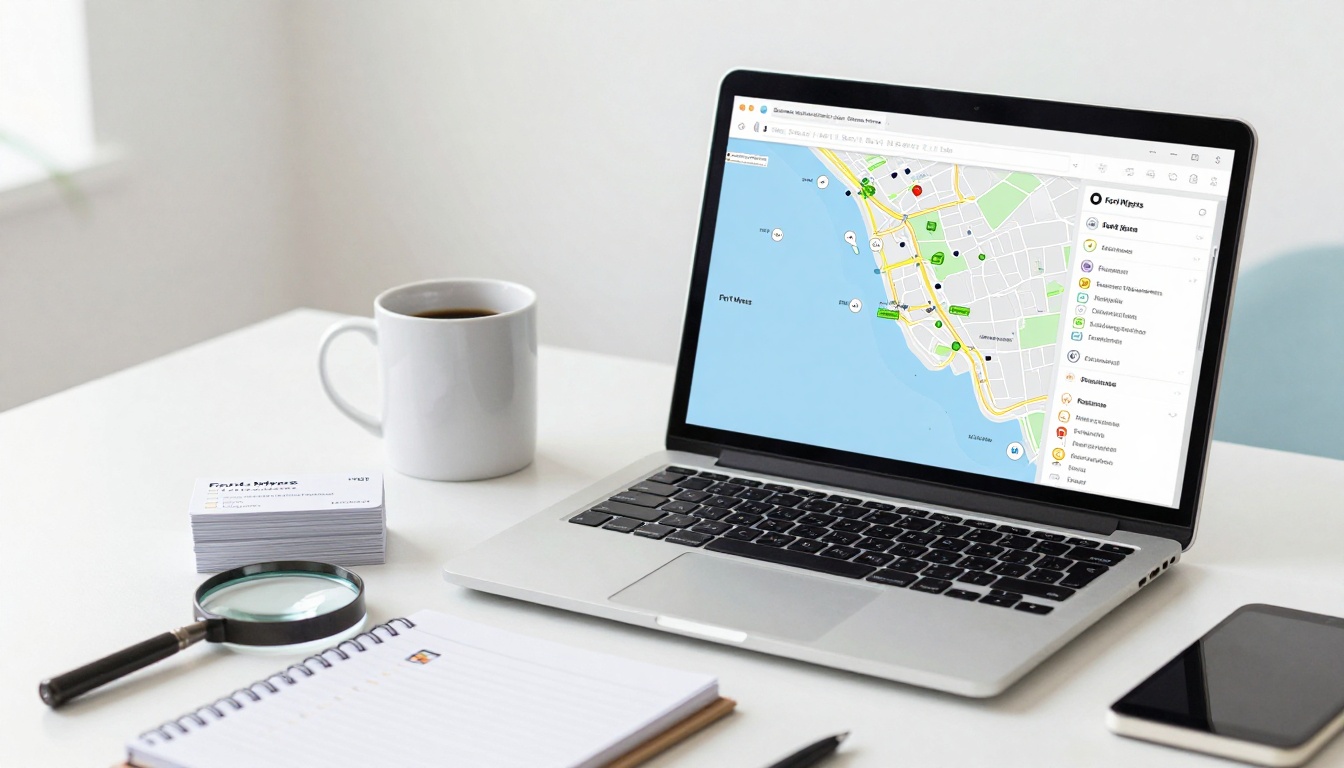Fort Myers Drone Regulations: What Businesses Need to Know Before Flying
Fort Myers Drone Regulations: What Businesses Need to Know Before Flying
Overview of Current Drone Regulations in Fort Myers
Flying drones for business purposes in Fort Myers requires careful attention to a mix of federal, state, and local regulations. These rules are designed to ensure safety, protect privacy, and maintain order in the airspace. Understanding this legal framework is essential because non-compliance can lead to hefty fines or even criminal charges. Recent updates to drone laws have tightened restrictions, making it more important than ever for businesses to stay informed about the latest requirements.
Businesses must also recognize that failing to comply with these regulations can result in more than just financial penalties—it can damage their reputation and disrupt operations. For example, unauthorized flights over restricted areas can lead to immediate grounding of operations by authorities. To navigate these complexities, companies like Yeppy Marketing offer expertise in understanding Fort Myers drone regulations, helping businesses avoid costly mistakes while leveraging drone technology effectively.
Federal Laws Impacting Drone Operations
The Federal Aviation Administration (FAA) governs commercial drone use through Part 107 rules, which set the foundation for safe and legal operations. Under these regulations, businesses must register their drones, adhere to weight limits, and operate within visual line-of-sight. Pilots are required to pass the Aeronautical Knowledge Test to obtain a Remote Pilot Certificate, ensuring they understand airspace classifications, weather conditions, and emergency procedures.
Additionally, Part 107 imposes operational limits such as a maximum altitude of 400 feet and prohibits flying over people or moving vehicles without a waiver. These rules are not optional—they are enforceable laws that come with serious consequences if ignored. Staying compliant with FAA standards not only protects your business but also ensures smoother integration of drones into your workflow, whether for deliveries, inspections, or marketing purposes.
Florida State-Specific Drone Laws and Recent Changes (2025)
Starting October 1, 2025, Florida will implement stricter drone laws aimed at enhancing safety and addressing growing concerns about privacy. One significant change includes harsher penalties for violations, including criminal charges for unauthorized surveillance or interference with critical infrastructure. These updates reflect the state’s effort to adapt to the rapid expansion of drone technology while safeguarding public interests.
New provisions also establish guidelines for drone delivery ports, setting statewide construction and zoning standards. Importantly, local governments will face limitations on creating additional permitting barriers, streamlining the process for businesses looking to expand their drone operations. However, businesses must still comply with specific location-based rules, especially those involving airports, prisons, and other sensitive facilities.
Privacy remains a central focus of Florida’s updated drone laws. For instance, capturing footage over private property without consent is now explicitly banned, and businesses could face lawsuits for improper data collection. Companies operating drones should familiarize themselves with these privacy protections to avoid legal disputes down the road. By staying ahead of these changes, businesses can position themselves as responsible operators in an evolving regulatory landscape.
City of Fort Myers Drone Ordinances: What Local Businesses Must Know
In addition to state and federal rules, Fort Myers has its own ordinances governing drone usage. These often include requirements for obtaining landowner consent before flying over private property or near sensitive zones like schools and government buildings. While some cities impose unique restrictions, Fort Myers aligns closely with statewide standards, particularly regarding no-fly zones around airports and correctional facilities.
It’s worth noting that state law generally preempts local governments from enacting conflicting regulations, meaning Fort Myers ordinances cannot override broader state mandates. This consistency simplifies compliance for businesses operating across multiple jurisdictions. However, understanding the nuances of local rules remains crucial, as violations—even unintentional ones—can lead to significant repercussions.
Where You Can and Cannot Fly: Restricted and Sensitive Airspaces
Knowing where you can safely operate a drone is vital for compliance and safety. In Fort Myers, prohibited zones include areas near Southwest Florida International Airport, correctional facilities, power plants, and other critical infrastructure. Flying in these restricted airspaces without proper authorization can result in severe penalties, including fines and confiscation of equipment.
To avoid accidental breaches, businesses should utilize tools like the FAA’s B4UFLY app or interactive airspace maps to identify no-fly zones. Additionally, consulting with professionals who specialize in drone regulation, such as Yeppy Marketing , can provide tailored guidance based on your operational needs. Being proactive about identifying restricted areas ensures smooth operations while minimizing risks.
Commercial and Delivery Drone Operations: Permits, Ports, and Zoning
For businesses interested in commercial drone activities, securing the right permits and adhering to zoning laws is paramount. The new state legislation introduces standardized criteria for constructing and operating drone delivery ports, reducing red tape for businesses aiming to innovate in logistics. This development opens exciting opportunities for industries ranging from e-commerce to real estate photography.
Despite these advancements, businesses must still navigate complex permitting processes, especially when dealing with local zoning boards. Compliance with both state and federal guidelines is mandatory, and failure to meet these standards can delay projects or halt them altogether. Working with experts familiar with Fort Myers drone regulations can streamline this process, ensuring all legal boxes are checked efficiently.
Moreover, companies venturing into aerial surveying, inspection, or videography must consider how their operations align with privacy and airspace rules. Each application presents unique challenges, requiring thorough planning and adherence to best practices. With proper preparation, businesses can harness the full potential of drones while maintaining compliance with evolving laws.
Privacy, Data Collection, and Surveillance Concerns
Respecting privacy is one of the most critical aspects of using drones for business. Florida law prohibits unauthorized surveillance over private property, and capturing images or videos without consent can lead to civil liabilities. Businesses must establish clear protocols to prevent misuse of collected data, ensuring transparency and accountability in their operations.
To mitigate risks, adopt best practices such as notifying property owners before flights and limiting data retention periods. Implementing robust privacy policies not only builds trust with clients and stakeholders but also safeguards against potential lawsuits. As drone technology continues to evolve, prioritizing ethical data handling will remain a cornerstone of successful commercial operations.
Insurance and Liability Issues for Commercial Drone Operators
Insurance is a non-negotiable aspect of running a drone-based business. General liability insurance covers damages caused during operations, while hull insurance protects the drone itself from accidents or malfunctions. Without adequate coverage, businesses expose themselves to substantial financial risks, especially in cases of property damage or privacy breaches.
State laws further underscore the importance of insurance by holding operators accountable for incidents resulting from negligence. Investing in comprehensive coverage demonstrates professionalism and responsibility, qualities that enhance your brand’s reputation. Consulting specialists in Fort Myers drone regulations can help identify the right insurance solutions tailored to your specific needs.
Penalties for Violating Drone Regulations
Violating drone regulations in Fort Myers can lead to severe consequences, ranging from monetary fines to criminal charges. Unauthorized flights over restricted zones, breaching airspace rules, or conducting illegal surveillance can result in penalties under Florida’s updated laws. Businesses found guilty may face fines exceeding thousands of dollars per incident.
Beyond financial repercussions, non-compliance can jeopardize a company’s ability to continue drone operations. Repeat offenders risk losing their FAA certification or facing permanent bans. Understanding and adhering to these regulations is therefore essential for long-term success in the drone industry.
Steps to Stay Compliant: Best Practices for Fort Myers Businesses
To stay compliant with Fort Myers drone regulations, businesses should follow a structured approach. Start by obtaining necessary certifications, such as the FAA Part 107 license, and registering all drones with the appropriate authorities. Next, thoroughly review local ordinances and identify any area-specific restrictions that apply to your operations.
Implementing strong privacy and insurance protocols is equally important. Regular training for pilots, combined with periodic audits of operational practices, ensures ongoing compliance. Partnering with firms like Yeppy Marketing can provide valuable insights and support, helping businesses thrive within the bounds of the law.
Emerging Trends: The Future of Drone Use for Businesses in Fort Myers
The future of drone technology in Fort Myers looks promising, with innovations in delivery services, advanced mapping, and automated inspections on the horizon. As regulations continue to evolve, businesses must stay adaptable and informed. Preparing for upcoming legislative changes and investing in cutting-edge solutions will position companies to capitalize on new opportunities while remaining compliant.
Resources for Staying Updated on Drone Laws
Staying informed about drone regulations requires accessing reliable resources. The FAA website offers detailed information on federal guidelines, while the Florida Department of Transportation provides updates on state-specific laws. Industry associations and local authorities, including Fort Myers city offices, are also excellent sources for regulatory news and compliance assistance.
FAQ: Fort Myers Drone Regulations for Businesses
Do I need an FAA license to operate a drone for my Fort Myers business?
Yes, if you’re using a drone for commercial purposes, you must obtain an FAA Part 107 Remote Pilot Certificate. This certification verifies that you understand the necessary aeronautical knowledge and safety protocols required for legal operation.
Are there insurance requirements for business drones in Fort Myers?
While there are no explicit insurance mandates, carrying general liability and hull insurance is strongly recommended. These policies protect your business from financial losses due to accidents, property damage, or privacy violations.
Can my business fly drones over private property or residential areas?
No, flying over private property or residential areas without the owner’s consent violates Florida’s privacy laws. Always seek permission and adhere to local ordinances to avoid legal issues.
What should I do if my business wants to set up a drone delivery port?
Consult Florida’s statewide standards for drone port construction and zoning. Ensure compliance with these guidelines and work with local authorities to secure necessary approvals.
What are typical penalties for violating Fort Myers drone regulations?
Penalties range from fines to criminal charges, depending on the severity of the violation. Unauthorized flights or breaches of privacy can result in significant financial and operational consequences.
Conclusion
Navigating Fort Myers drone regulations demands diligence, awareness, and a commitment to compliance. From federal mandates to local ordinances, businesses must prioritize education and adherence to avoid costly penalties. As drone technology advances, staying informed about emerging trends and legislative updates will be key to sustaining growth and innovation.
To ensure seamless integration of drones into your business operations, take action today. Review current laws, obtain required certifications, update your practices, and consult professionals like Yeppy Marketing for expert guidance. Proactive steps now will pave the way for a compliant and prosperous future in Fort Myers’ dynamic drone ecosystem.
Featured Resources



